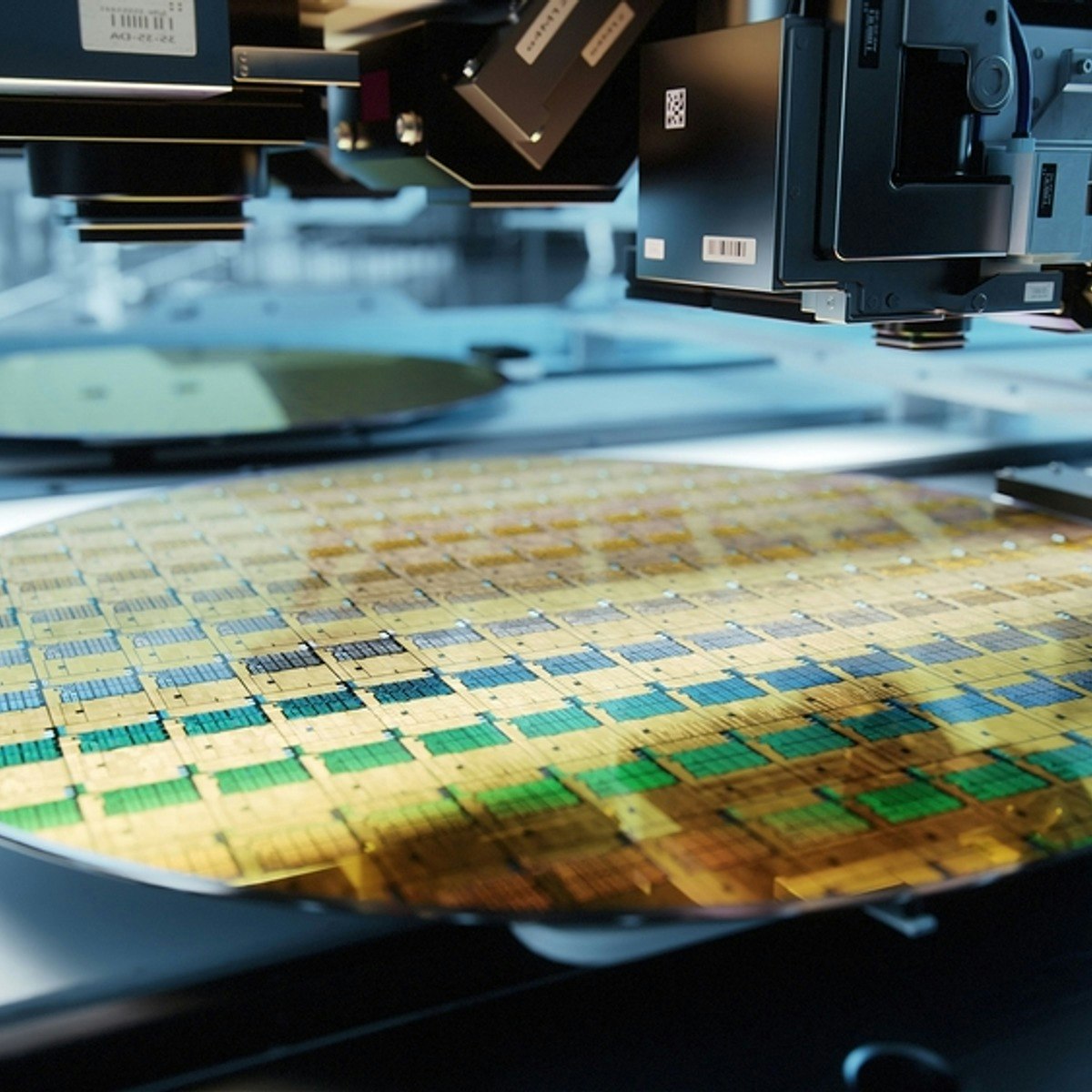Nanotechnology Engineer
Nanotechnology Engineer: Shaping the Future at the Atomic Scale
Nanotechnology engineering is a field dedicated to understanding, manipulating, and engineering matter at the atomic, molecular, and supramolecular scales – typically from 1 to 100 nanometers. It involves designing, developing, and applying materials, devices, and systems with novel properties derived from their nanoscale dimensions. This discipline sits at the intersection of physics, chemistry, biology, materials science, and various engineering fields, making it inherently interdisciplinary.
Working as a nanotechnology engineer offers the chance to operate at the forefront of scientific discovery and technological innovation. Imagine creating materials stronger yet lighter than anything known before, developing sensors capable of detecting diseases at their earliest stages, or designing ultra-efficient energy systems. It's a career focused on building the future, molecule by molecule, tackling some of the world's most pressing challenges through the power of the infinitesimally small.
What Does a Nanotechnology Engineer Do?
Designing and Developing at the Nanoscale
A core function of nanotechnology engineers is the design and creation of nanomaterials and nanodevices. This involves manipulating atoms and molecules to build structures with specific desired properties. They might work on synthesizing nanoparticles for drug delivery, fabricating nanoscale transistors for faster computers, or developing nanostructured catalysts for cleaner industrial processes.
This design process often requires sophisticated modeling and simulation tools to predict how materials will behave at the nanoscale. Engineers use specialized software to visualize molecular interactions and test different structural configurations before attempting physical fabrication. The goal is to create functional components and systems by controlling matter at its most fundamental level.
Fabrication itself relies on advanced techniques like photolithography, electron beam lithography, molecular self-assembly, and deposition methods. Nanotechnology engineers must be proficient in operating and refining these processes to achieve the required precision and reproducibility, often working in highly controlled cleanroom environments.
To explore the tools and techniques used in this field, consider this introductory course. It provides a foundational understanding of nano-fabrication and characterization methods.
Interdisciplinary Collaboration
Nanotechnology rarely exists in isolation. Engineers in this field constantly collaborate with experts from diverse scientific backgrounds. For instance, developing a new nanomedicine might involve working alongside biologists to understand cellular interactions, chemists to synthesize specific molecules, and medical researchers to design clinical trials.
This collaborative nature requires strong communication skills and the ability to understand concepts and terminology from different disciplines. Nanotechnology engineers often act as translators, bridging the gap between fundamental science and practical engineering applications. They must effectively convey complex technical details to team members with varying expertise.
Success in nanotechnology projects hinges on integrating knowledge from multiple fields. An engineer working on energy applications might collaborate with physicists on quantum effects in solar cells or with materials scientists on improving battery electrode structures. This cross-functional teamwork is essential for driving innovation.
Quality Control and Safety
Ensuring the quality, reliability, and safety of nanoscale materials and devices is paramount. Nanotechnology engineers develop and implement rigorous testing protocols. This involves using sophisticated characterization tools like scanning electron microscopes (SEM), transmission electron microscopes (TEM), and atomic force microscopes (AFM) to verify structures and properties.
Manufacturing at the nanoscale presents unique challenges. Maintaining consistency across batches and scaling up production from lab prototypes to industrial volumes require meticulous process control. Engineers work continuously to refine manufacturing techniques, minimize defects, and ensure products meet stringent specifications.
Safety is a critical consideration, both for researchers handling nanomaterials and for the potential environmental and health impacts of nanoproducts. Nanotechnology engineers are involved in developing safety guidelines, assessing risks associated with nanoparticle exposure, and designing products with minimal adverse effects. Adherence to safety protocols in labs and manufacturing facilities is non-negotiable.
Understanding the electronic properties crucial for many nanodevices is key. These courses delve into semiconductor physics, a cornerstone of modern nanotechnology applications.
Research, Publication, and Patents
Many nanotechnology engineers, particularly those in academic or R&D settings, are heavily involved in research. This includes designing experiments, analyzing data, and discovering new phenomena or applications at the nanoscale. Staying abreast of the latest scientific literature and technological advancements is crucial.
Disseminating research findings is a vital part of the process. Engineers write technical papers for publication in peer-reviewed journals and present their work at scientific conferences. This sharing of knowledge contributes to the advancement of the field as a whole.
Protecting intellectual property is also important, especially in industrial R&D. Nanotechnology engineers often contribute to patent applications, documenting novel inventions and processes. This secures commercial advantages for their organizations and recognizes their innovative contributions.
For those interested in the fundamental physics underpinning many nanotechnologies, these books provide comprehensive coverage. They cover semiconductor physics and devices, essential knowledge for engineers in this field.
Building Your Foundation: Educational Pathways
Pre-University Groundwork
Aspiring nanotechnology engineers should build a strong foundation in science, technology, engineering, and mathematics (STEM) during high school. Focus on advanced coursework in physics, chemistry, biology, and calculus. These subjects provide the fundamental principles upon which nanotechnology concepts are built.
Engaging in science fairs, robotics clubs, or coding competitions can offer valuable hands-on experience and develop problem-solving skills. Seeking opportunities for lab experience, even as a volunteer or intern, can provide early exposure to research environments and techniques relevant to the field.
Developing strong analytical and critical thinking skills is equally important. The ability to break down complex problems, analyze data, and think creatively is essential for success in any engineering discipline, particularly one as innovative as nanotechnology.
Undergraduate Studies
There isn't always a specific "Nanotechnology Engineering" undergraduate degree. More commonly, students pursue bachelor's degrees in related fields like Materials Science and Engineering, Chemical Engineering, Electrical Engineering, Physics, or Biomedical Engineering. These programs provide the core engineering and scientific knowledge required.
Within these broader degrees, students should look for opportunities to specialize or take elective courses related to nanotechnology, quantum mechanics, solid-state physics, organic chemistry, and surface science. Some universities offer minors or concentrations specifically in nanotechnology or nanoscale science.
Undergraduate research opportunities (often called UROPs or similar) are highly valuable. Participating in a professor's research lab provides practical experience with specialized equipment and techniques, exposure to cutting-edge research problems, and potential co-authorship on publications.
These foundational texts cover essential topics in semiconductor devices and solid-state physics, often forming the basis of undergraduate and graduate coursework.
Graduate Education and Specialization
While a bachelor's degree can open doors to technician or entry-level engineering roles, advanced positions, particularly in research and development, often require a graduate degree (Master's or PhD). Graduate programs allow for deep specialization in specific areas of nanotechnology.
Master's programs typically involve advanced coursework and sometimes a research project or thesis, providing specialized knowledge for industry roles. PhD programs are research-intensive, culminating in a significant original contribution to the field documented in a dissertation. A PhD is often necessary for academic positions or leading R&D teams.
Specializations can range widely, including areas like nanoelectronics, nanophotonics, nanomaterials synthesis, nanomedicine, nanobiotechnology, nanoscale energy systems, or computational nanotechnology. Choosing a specialization often depends on career goals and research interests developed during undergraduate studies.
Exploring specific applications like solar cells can be part of graduate specialization. These courses focus on the physics and technology of silicon-based solar cells.
Certifications and Licensure
Unlike some traditional engineering fields (like civil or mechanical engineering), there isn't typically a mandatory professional licensure (like the PE license) specifically required for nanotechnology engineers, especially those in research or specialized industrial roles. Requirements can vary based on the specific industry and country.
However, certifications related to specific skills, equipment, or safety protocols might be beneficial or required by certain employers. These could include certifications in cleanroom procedures, specific microscopy techniques, or hazardous materials handling.
Continuing education and staying updated with the rapidly evolving field through workshops, conferences, and professional society memberships are crucial, regardless of formal certification status. Lifelong learning is essential in nanotechnology.
Online Learning and Skill Development
Core Topics for Self-Directed Study
For those supplementing formal education or pivoting into the field, online resources offer valuable pathways to learn core concepts. Key areas include quantum mechanics (understanding behavior at the atomic scale), solid-state physics (properties of materials), thermodynamics, molecular biology (for bio-nano applications), and advanced chemistry (synthesis and characterization).
Online platforms host courses covering fundamental principles relevant to nanotechnology. While they might not replicate hands-on lab work, they are excellent for building theoretical understanding, learning computational modeling techniques, and grasping the interdisciplinary nature of the field.
Finding structured learning paths or sequences of courses can be highly effective. OpenCourser provides tools to search across thousands of courses, allowing learners to identify relevant materials from various providers and build a personalized curriculum covering these foundational topics.
These introductory texts offer broad overviews of nanotechnology principles and practices, suitable for self-study or as supplementary reading.
Hands-On Experience Through Projects
While physical lab access is challenging outside formal institutions, aspiring nanotechnology engineers can still gain practical experience. Engaging in projects involving computational modeling and simulation is one accessible route. Using software to design nanostructures or simulate material properties develops valuable skills.
Contributing to open-source software projects related to scientific computing, materials modeling, or data analysis can also build a strong portfolio. Analyzing publicly available datasets from nanotechnology research (e.g., microscopy images, material properties databases) is another way to apply learning.
Building simple sensor systems using platforms like Arduino or Raspberry Pi, while not strictly nanoscale, develops relevant skills in electronics, programming, and data acquisition. These projects demonstrate initiative and practical problem-solving abilities valuable to potential employers.
Integrating Online and Formal Learning
Online courses are powerful tools for supplementing traditional degree programs. They can provide deeper dives into specific topics not covered extensively in standard curricula or offer alternative perspectives from different instructors and institutions.
Students can use online resources to prepare for challenging coursework, review fundamental concepts, or explore emerging areas within nanotechnology. This proactive approach to learning demonstrates commitment and can enhance academic performance.
For professionals considering a career change, online courses provide a flexible way to acquire foundational knowledge before committing to a full degree program. They can help assess interest and aptitude for the field while accommodating existing work schedules. OpenCourser's Learner's Guide offers strategies for effectively integrating online learning into various educational and professional contexts.
Exploring specialized areas like semiconductor characterization or beam technologies can supplement formal learning. These courses offer insights into specific analytical techniques used in nanotechnology labs.
Recognizing the Limits
It's crucial to acknowledge the limitations of purely online learning for nanotechnology engineering. This field is heavily reliant on hands-on experimental work with sophisticated, expensive equipment typically found only in university or industrial research labs. Online courses cannot fully replicate this essential practical experience.
While simulations and theoretical knowledge are vital, proficiency in techniques like nanofabrication, high-resolution microscopy, and material synthesis requires direct physical practice. Therefore, online learning is best viewed as a powerful supplement or preparatory step, rather than a complete substitute for formal education and lab-based training, especially for research-focused roles.
Individuals pursuing this path through self-study should actively seek opportunities for internships, lab assistant positions, or collaborative projects that provide access to physical laboratory environments to gain the necessary hands-on skills.
For broader context, these books cover nanotechnology principles and future trends, offering perspectives on the field's potential and challenges.
Navigating Your Career in Nanotechnology
Starting Your Journey: Entry-Level Roles
Graduates typically begin their careers in roles such as Research Assistant, Lab Technician, Process Engineer, or Junior Scientist. These positions often involve supporting senior engineers and scientists, conducting experiments, operating equipment, collecting and analyzing data, and maintaining lab operations.
Entry-level roles provide invaluable hands-on experience with specific techniques and equipment used in nanotechnology R&D or manufacturing. This period is crucial for developing practical skills, understanding industry workflows, and identifying areas for future specialization.
Working under the guidance of experienced professionals helps new engineers learn industry best practices, safety protocols, and the nuances of working at the nanoscale. Strong performance and continuous learning in these roles are key to future advancement.
Advancing Your Career: Mid-Level Transitions
With experience, nanotechnology engineers can progress to roles like Project Lead, R&D Specialist, Senior Process Engineer, or Application Scientist. These positions often involve greater responsibility, including leading small teams, managing specific research projects, developing new processes or products, and interacting with clients or collaborators.
Mid-career professionals typically develop deeper expertise in a particular area of nanotechnology. They may become specialists in a specific fabrication technique, characterization method, material type, or application domain (e.g., nanomedicine, nanoelectronics).
Strong technical skills combined with effective project management and communication abilities are essential for success at this stage. Pursuing advanced degrees (if not already obtained) or specialized certifications can facilitate transitions into more demanding roles.
Reaching the Top: Senior and Leadership Positions
Experienced nanotechnology engineers with a strong track record of innovation and leadership can advance to senior roles such as Principal Scientist, Research Manager, Director of R&D, or Chief Technology Officer (in smaller companies or startups). These positions involve setting strategic research directions, managing large teams and budgets, overseeing technology development pipelines, and potentially influencing company strategy.
At this level, a deep understanding of the scientific and technical landscape is combined with strong business acumen and leadership skills. Senior leaders often play a key role in securing funding, establishing collaborations, and translating research breakthroughs into commercially viable products.
Some highly experienced engineers may pursue academic careers as professors, leading their own research groups and training the next generation of nanotechnology professionals. Others might transition into roles focused on intellectual property management, technology transfer, or science policy.
Exploring New Horizons: Mobility and Entrepreneurship
The interdisciplinary nature of nanotechnology provides opportunities for mobility across different industries. An engineer with expertise in nanomaterials might move between roles in electronics, aerospace, energy, or healthcare, applying their skills to different challenges.
The skills developed in nanotechnology, such as complex problem-solving, materials characterization, and process development, are transferable to related fields like advanced materials, biotechnology, or semiconductor manufacturing. This adaptability enhances long-term career prospects.
Nanotechnology is also a fertile ground for entrepreneurship. Many engineers leverage their expertise and innovations to launch startup companies focused on developing and commercializing new nanotech products or services. This path offers high potential rewards but also involves significant risks and challenges.
Skills That Define a Nanotechnology Engineer
Mastering the Technical Toolkit
A strong technical foundation is non-negotiable. Key skills include proficiency in nanofabrication techniques (e.g., lithography, deposition, etching), expertise in characterization methods using advanced microscopy (SEM, TEM, AFM, STM) and spectroscopy, and understanding materials science principles at the nanoscale.
Computational modeling and simulation skills are increasingly important for designing experiments, predicting material behavior, and analyzing data. Familiarity with relevant software packages for molecular dynamics, quantum mechanical calculations, or finite element analysis is often required.
Depending on the specialization, knowledge of specific areas like semiconductor physics, quantum mechanics, organic chemistry, molecular biology, or surface science is crucial. Hands-on experience with specialized lab equipment and cleanroom protocols is also essential for many roles.
Courses focusing on specific applications or related technologies can broaden the technical toolkit. Examples include semiconductor devices, optics, or sensor systems.
These books delve into specialized areas like optoelectronics and photonics, relevant for engineers working on light-based nanotechnologies.
The Power of Soft Skills
Technical expertise alone is not sufficient. Nanotechnology engineers must be excellent problem-solvers, capable of tackling complex, often unprecedented challenges. This requires analytical thinking, creativity, and persistence.
Given the interdisciplinary nature of the field, strong communication skills are vital. Engineers need to effectively convey technical information to colleagues from different backgrounds, write clear reports and publications, and present findings persuasively.
Teamwork and collaboration are essential, as nanotechnology projects often involve large, diverse teams. Adaptability and a willingness to learn are also crucial in a field that evolves so rapidly.
Embracing Emerging Tools and Techniques
Nanotechnology is constantly evolving, driven by new discoveries and technological advancements. Engineers must stay informed about emerging tools and techniques. For example, artificial intelligence (AI) and machine learning are increasingly used for materials discovery, process optimization, and data analysis in nanotechnology.
Familiarity with automation and robotics in laboratory settings is becoming more relevant. New characterization methods and fabrication techniques are continually being developed, requiring ongoing learning to stay current.
Understanding the integration of nanotechnology with other cutting-edge fields like biotechnology (e.g., biohybrid systems) or quantum computing is also becoming increasingly important for future innovation.
Committing to Continuous Learning
The rapid pace of advancement in nanotechnology necessitates a commitment to lifelong learning. This involves regularly reading scientific journals, attending conferences and workshops, taking additional courses (online or in-person), and engaging with professional societies.
Networking with peers and experts in the field is crucial for staying informed about the latest trends and opportunities. Mentorship, both giving and receiving, can also play a significant role in professional development.
Actively seeking out new challenges and being willing to acquire new skills are key attributes of successful nanotechnology engineers. The ability to adapt and learn throughout one's career is perhaps the most critical competency in this dynamic field.
OpenCourser's platform allows you to browse courses across various scientific and engineering disciplines, making it easier to find resources for continuous learning and skill updates.
Impact Across Industries
Revolutionizing Healthcare
Nanotechnology is making significant inroads in medicine and healthcare. Engineers are developing nanoparticles for targeted drug delivery, allowing treatments to be directed specifically to diseased cells (like cancer) while minimizing side effects on healthy tissue. Nanoscale sensors are enabling earlier and more sensitive disease detection through diagnostics.
Nanomaterials are being used to create improved medical implants with enhanced biocompatibility and functionality. Tissue engineering leverages nanoscale scaffolds to support cell growth and regenerate damaged tissues. The hypothetical concept of "nanobots" – microscopic robots performing tasks inside the body – remains futuristic but represents a long-term goal driving research.
The potential impact on personalized medicine, diagnostics, and therapeutics is immense, making healthcare a major area of focus for nanotechnology R&D.
These books discuss the application of nanotechnology in specific areas like healthcare and plant sciences.
Transforming Energy and Electronics
In the energy sector, nanotechnology offers solutions for greater efficiency and sustainability. Engineers are designing nanostructured materials to improve the performance of solar cells, making them more efficient at converting sunlight into electricity. Nanomaterials are also enhancing battery capacity, charging speed, and lifespan.
Nanotechnology plays a key role in developing more efficient catalysts for fuel cells and industrial processes. Nanoscale materials can also contribute to lighter, stronger components for vehicles and aircraft, reducing energy consumption.
In electronics, nanotechnology continues the trend of miniaturization predicted by Moore's Law. Nanoscale transistors, quantum dots, and novel memory devices promise faster, smaller, and more powerful computing and communication technologies. Flexible electronics and advanced displays also rely heavily on nanomaterials.
Environmental Applications and Sustainability
Nanotechnology provides tools to address environmental challenges. Nanomaterials are being developed for more effective water purification, capable of removing contaminants at the molecular level. Nanosensors can detect pollutants in air and water with high sensitivity.
Nanocatalysts can help break down pollutants or make industrial processes cleaner and more efficient, reducing waste generation. Research is also exploring the use of nanomaterials for carbon capture and storage, contributing to climate change mitigation efforts.
However, the environmental impact of nanomaterials themselves must be carefully assessed, ensuring that solutions do not create new problems. Sustainable design principles are increasingly important in nanotechnology development.
Market Growth and Economic Significance
The global nanotechnology market is experiencing significant growth, driven by increasing applications across diverse industries. Governments and private sectors worldwide are investing heavily in nanotechnology research and development, recognizing its potential for economic competitiveness and societal benefit.
Market research reports, like those potentially found on sites like McKinsey or other consulting firms, often project continued expansion in areas like nanoelectronics, nanomedicine, and nanomaterials. According to some analyses, the market size is substantial and expected to grow further in the coming years.
This economic activity translates into job opportunities for skilled nanotechnology engineers in academia, government labs, established corporations, and innovative startups. The field's economic relevance underscores its importance as a driver of future technology.
The development of nanotechnology has been supported by significant government investment, such as the U.S. National Nanotechnology Initiative (NNI), highlighting its strategic importance.
Addressing Ethical and Safety Concerns
Potential Health Risks
The unique properties of nanoparticles also raise concerns about potential health risks. Due to their small size, nanoparticles can potentially enter the body through inhalation, ingestion, or skin contact and interact with biological systems in ways that are not yet fully understood.
Research is ongoing to assess the toxicology of different types of nanomaterials and understand their long-term effects on human health. Nanotechnology engineers play a role in this research and in developing safer handling procedures and engineering controls to minimize occupational exposure in labs and manufacturing facilities.
Responsible development involves considering potential health impacts throughout the product lifecycle, from manufacturing to use and disposal.
Environmental Considerations
The release of engineered nanomaterials into the environment is another area of concern. Their fate, transport, and potential effects on ecosystems are subjects of ongoing investigation. For example, understanding how nanoparticles interact with soil, water, and various organisms is crucial.
Efforts are underway to develop methods for detecting and monitoring nanomaterials in the environment and to assess their potential ecological risks. Sustainable practices in nanotechnology include designing "green" synthesis methods and considering the end-of-life management of nanoproducts.
Organizations like the U.S. Environmental Protection Agency (EPA) are actively involved in researching the environmental aspects of nanotechnology.
Regulation and Standards
As nanotechnology matures, regulatory frameworks are being developed globally to manage potential risks while fostering innovation. Agencies responsible for chemical safety, environmental protection, and workplace safety are adapting existing regulations or creating new guidelines specific to nanomaterials.
Developing standardized methods for characterizing and testing nanomaterials is essential for regulatory consistency and consumer confidence. International collaboration is important for harmonizing standards and ensuring safe trade and use of nanotechnology products worldwide.
Nanotechnology engineers need to stay informed about relevant regulations and standards in their specific industry and geographical region and ensure their work complies with these requirements.
This report provides insights into the national strategy and review process for nanotechnology in the US.
Broader Ethical Discussions
Beyond health and environmental safety, nanotechnology raises broader ethical questions. These include concerns about potential military applications, privacy implications of advanced nano-surveillance technologies, equitable access to the benefits of nanotechnology, and the potential for unforeseen societal consequences.
Public engagement and open discussion about the ethical, legal, and social implications (ELSI) of nanotechnology are important for responsible development. Engineers, scientists, policymakers, and the public need to participate in these conversations to guide the trajectory of the field.
Considering the societal context and potential impacts of their work is an increasingly important aspect of being a responsible nanotechnology engineer.
These books explore some of the societal implications and ethical considerations surrounding nanotechnology.
The Road Ahead: Challenges and Trends
Overcoming Technical Hurdles
Despite significant progress, major technical challenges remain. Scaling up the production of complex nanomaterials and devices from lab quantities to industrial volumes reliably and cost-effectively is often difficult. Ensuring batch-to-batch consistency and reproducibility at the nanoscale remains a significant hurdle.
Developing precise and efficient methods for manipulating matter at the atomic level continues to be a central challenge. Improving characterization techniques to "see" and measure properties at the nanoscale with greater accuracy and speed is also crucial for advancing the field.
Integrating nanoscale components into larger, functional systems presents complex engineering problems related to interfacing, power supply, and signal processing.
Funding and Commercialization Dynamics
Translating promising laboratory research into commercially successful products involves navigating the "valley of death" – the gap between basic research funding and commercial investment. Securing adequate funding for development, scale-up, and market entry can be challenging, particularly for startups.
Market adoption of new nanotechnologies can be slow due to factors like cost, regulatory uncertainty, and the need to integrate them into existing systems. Demonstrating clear performance advantages and cost-effectiveness is crucial for commercial success.
Intellectual property protection and navigating complex patent landscapes are also significant aspects of commercializing nanotechnology innovations.
Exciting Future Directions
The future of nanotechnology promises exciting advancements. Nanorobotics, while still largely conceptual, holds potential for applications in medicine and manufacturing. The development of biohybrid systems, integrating nanoscale components with biological entities, opens up new possibilities in sensing, computing, and healthcare.
Quantum phenomena at the nanoscale are being harnessed for quantum computing, advanced sensors, and new types of electronic devices. Continued exploration of novel nanomaterials like graphene, carbon nanotubes, and metal-organic frameworks (MOFs) is expected to yield materials with unprecedented properties.
The convergence of nanotechnology with AI, biotechnology, and information technology is likely to drive major innovations in the coming decades, leading to smarter materials, more personalized medicine, and more efficient energy systems.
These books offer accessible introductions to nanotechnology, suitable for those curious about the field's basics and potential.
Influence of Global Policies
Government policies and international collaborations significantly influence the direction and pace of nanotechnology research and development. National initiatives and funding priorities shape the focus areas for research grants and investments.
International cooperation is essential for addressing global challenges like climate change or pandemics, where nanotechnology can play a role. Conversely, geopolitical tensions and trade policies can impact supply chains for critical nanomaterials and international research collaborations.
Regulations related to safety, environmental protection, and ethical considerations also guide the development and deployment of nanotechnologies, influencing research priorities and market access.
Frequently Asked Questions
Is a PhD required to work as a Nanotechnology Engineer?
Not always, but it depends heavily on the specific role and industry. For research-intensive positions in academia or corporate R&D labs, a PhD is often required or strongly preferred. It signifies deep expertise and the ability to conduct independent research.
However, individuals with Bachelor's or Master's degrees in relevant engineering or science fields can find roles in nanotechnology, particularly in areas like process engineering, manufacturing, quality control, technical support, or as lab technicians or research assistants.
Ultimately, the required education level depends on the desired career path and the specific demands of the job.
What industries hire the most Nanotechnology Engineers?
Nanotechnology engineers find opportunities across a wide range of industries. Key sectors include electronics and semiconductors (for developing smaller, faster components), materials science (creating advanced materials with novel properties), biotechnology and pharmaceuticals (for drug delivery, diagnostics, and medical devices), energy (solar cells, batteries, catalysts), and aerospace and automotive (lightweight materials, sensors).
Government labs and academic institutions are also major employers, focusing on fundamental research and development. Startups focused on commercializing specific nanotechnology innovations are another significant source of employment.
How competitive is the job market for Nanotechnology Engineers?
The job market is specialized and generally competitive. While nanotechnology is a growing field with increasing applications, the number of highly specialized roles may be limited compared to broader engineering disciplines. Competition can be particularly strong for top research positions.
Prospects depend on factors like educational qualifications, specialization area, practical lab experience, and location. According to the U.S. Bureau of Labor Statistics (BLS), overall employment for related fields like materials engineers or chemical engineers shows varying growth rates, but specific data for "nanotechnology engineer" as a distinct category is often limited. Candidates with advanced degrees and relevant hands-on skills are typically better positioned.
Can Nanotechnology Engineers transition into AI or Biotechnology roles?
Yes, transitions are possible, particularly given the interdisciplinary nature of nanotechnology. Engineers working on computational nanotechnology, data analysis from experiments, or bioinformatics aspects of nanomedicine may develop skills relevant to Artificial Intelligence or Data Science roles.
Similarly, those focused on nanobiotechnology, drug delivery, or biosensors gain experience directly applicable to the broader Biotechnology industry. Pursuing additional training or certifications in AI/ML or specific biotech areas can facilitate such transitions.
The core problem-solving, analytical, and technical skills developed as a nanotechnology engineer provide a strong foundation for moving into related high-tech fields.
What are the typical workplace settings?
Work environments vary widely. Many nanotechnology engineers work in laboratory settings, including university research labs, government R&D facilities, and corporate research centers. These often involve working in cleanrooms and using sophisticated fabrication and characterization equipment.
Others may work in manufacturing plants overseeing production processes or ensuring quality control. Some engineers might have roles that are more office-based, focusing on computational modeling, data analysis, project management, technical writing, or sales and application support.
The specific setting depends on the employer, the industry, and the engineer's particular role and responsibilities.
How does Nanotechnology Engineering differ from traditional engineering fields?
The primary distinction lies in the scale. Nanotechnology engineering specifically focuses on manipulating matter and designing systems at the nanoscale (1-100 nm), where quantum mechanical effects and surface phenomena often dominate material properties and device behavior. Traditional engineering fields (like mechanical, civil, or chemical engineering) typically deal with macroscopic systems, although they increasingly incorporate nanoscale principles.
Nanotechnology engineering is also inherently more interdisciplinary, drawing heavily from physics, chemistry, and biology in addition to core engineering principles. While a chemical engineer might design a large-scale reactor, a nanotechnology engineer might design the nanoscale catalyst used within that reactor, requiring a deep understanding of molecular interactions.
Helpful Resources
For those exploring this career path, several resources can provide further information and support:
- Professional Societies: Organizations like the IEEE Nanotechnology Council, the Materials Research Society (MRS), and the American Chemical Society (ACS) offer publications, conferences, and networking opportunities relevant to the field.
- Government Initiatives: Websites like the U.S. National Nanotechnology Initiative (nano.gov) provide information on research priorities, funding opportunities, and educational resources.
- Academic Journals: Publications such as Nature Nanotechnology, ACS Nano, and Nano Letters are leading sources for the latest research findings.
- Online Course Platforms: OpenCourser allows you to search and compare courses related to nanotechnology, materials science, semiconductors, and other relevant fields from various providers.
- University Research Centers: Exploring the websites of university nanotechnology centers can provide insights into current research areas and educational programs.
Embarking on a career as a Nanotechnology Engineer means entering a world of intricate science and groundbreaking innovation. It demands rigorous training, continuous learning, and a passion for working at the frontiers of what's possible. While challenging, the opportunity to contribute to transformative technologies that address global needs in health, energy, and beyond makes it a deeply rewarding path for those drawn to the power of the small scale.









